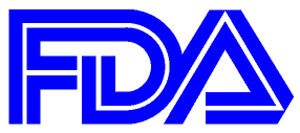FDA Worked With Indian Government To Seize 500 Counterfeit Drug Shipments in January
 The U.S. Food and Drug Administration (FDA) has just announced a successful joint operation with the Government of India targeting counterfeit prescription drugs, counterfeit over-the-counter medications, fake medical devices, and misbranded dietary supplements containing harmful ingredients.
The U.S. Food and Drug Administration (FDA) has just announced a successful joint operation with the Government of India targeting counterfeit prescription drugs, counterfeit over-the-counter medications, fake medical devices, and misbranded dietary supplements containing harmful ingredients.
Termed ‘Operation Broadsword,’ the effort focused on shipments arriving in the United States via a single International Mail Facility (IMF) over two days, from January 28th to January 30th. The cooperative effort was a collaboration between the U.S. offices of the Food and Drug Administration and Customs and Border Protection and the Indian Forensic Chemistry Center and Division of Northern Border Imports, Government of India’s Central Board of Indirect Taxes and Customs and Directorate of Revenue Intelligence.
FDA described the types of fake medications seized in the 800 shipments examined, and found 50 different FDA-regulated products, “including medications intended to treat and or mitigate serious diseases, such as various forms of cancer and HIV. Many of the shipments, which included opioid drugs products, had been transshipped through third-party countries to conceal their point of origin and avoid detection.”
The FDA reports that every day across the United States, the nine IMFs receive mail from over 180 countries. FDA is responsible for inspecting all the packages that come through, and are required to “detect and intercept illegal products, including those that are unapproved, counterfeit and/or potentially dangerous, such as illicit opioid products, counterfeit prescription drugs, medical devices, over-the-counter products, and products labeled as dietary supplements that may contain harmful ingredients.”
An April 2019 presentation, the U.S. Food and Drug Administration and the International Mail Facilities (IMFs), reported that in fiscal year 2017, IMFs across the country received 275 million packages—more than 750,000 each day. That same year, the FDA screened between 10,000 and 20,000 packages. Of those screened, 86% of the packages were detained due to concerns for public safety. In fact FDA only inspects a small fraction of the incredible volume of packages received at IMFs, and only .18% of those that authorities estimate contain drug products. The report also points out that it may take an experienced FDA investigator as long as twenty minutes to process a package containing a single product.
FDA Commissioner Stephen M. Hahn reiterated that FDA oversight of medication quality is vital to patient safety. “With standards and regulations varying in each country, U.S. consumers face hazards when they order drugs and other FDA-regulated products from unauthorized foreign sources and receive them through the international mail system. Consumers and physicians purchasing medicines cannot be assured the products they are receiving are legitimate, safe or effective if they are obtained from outside of the FDA-regulated pharmaceutical supply chain.”